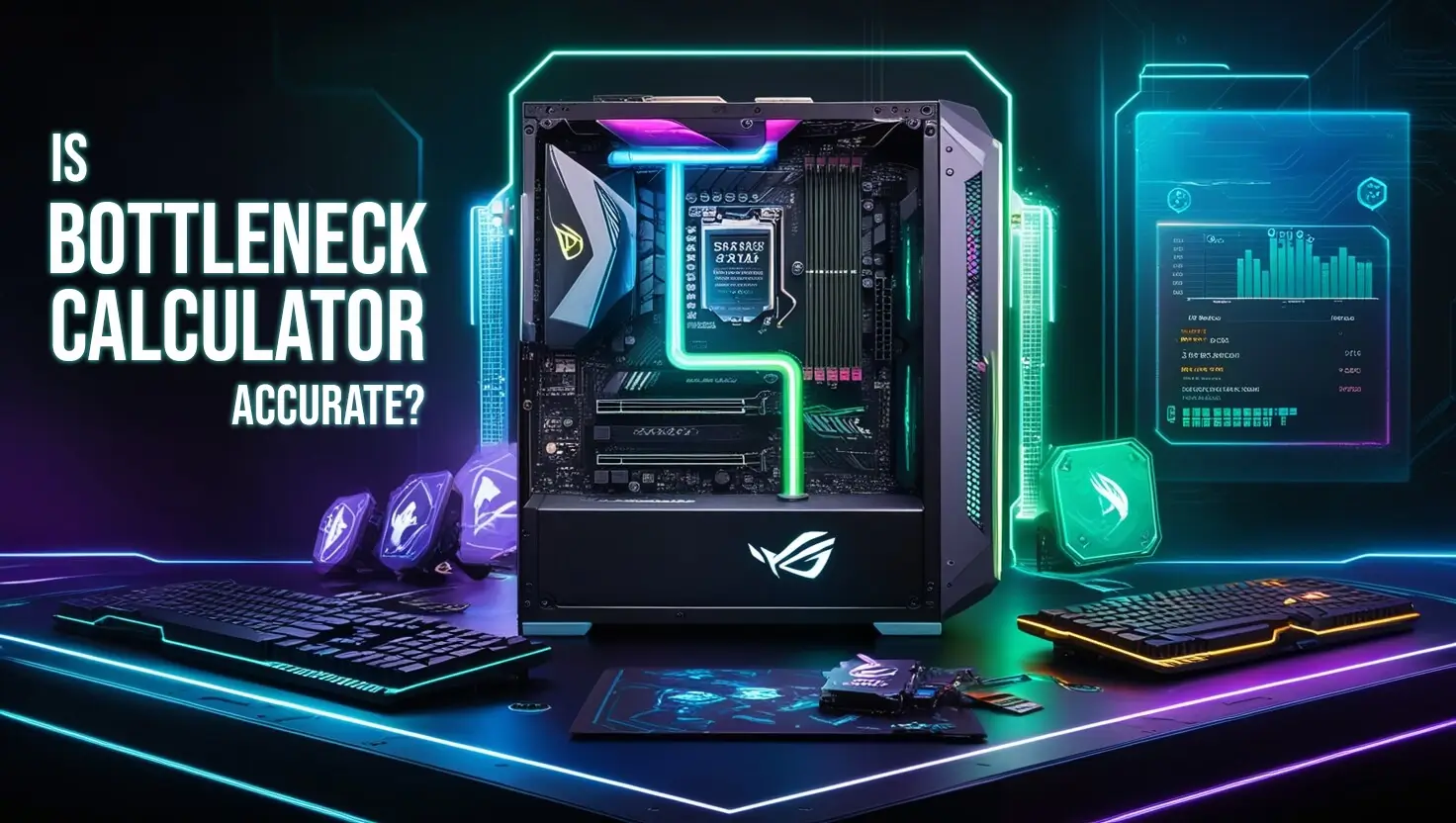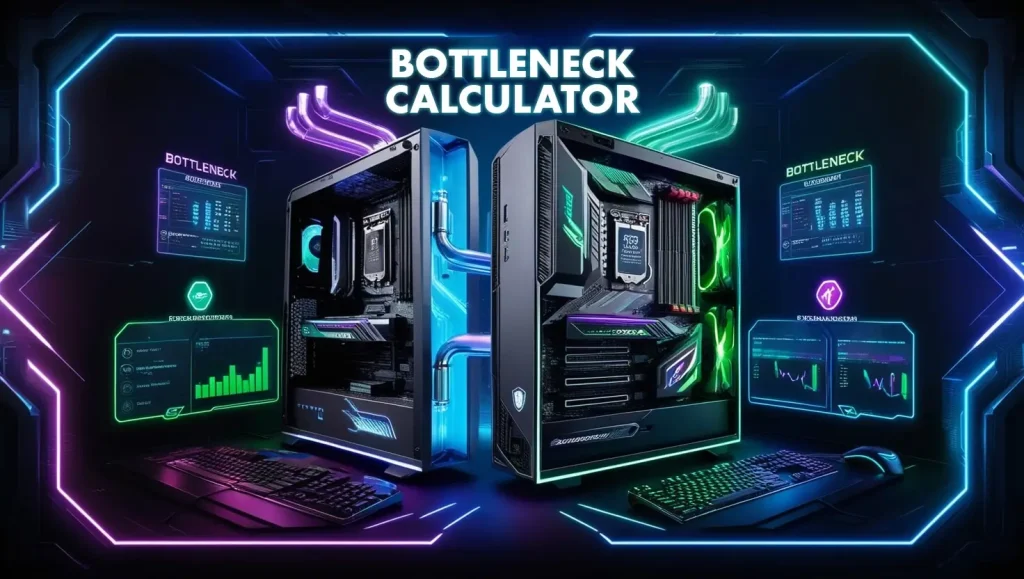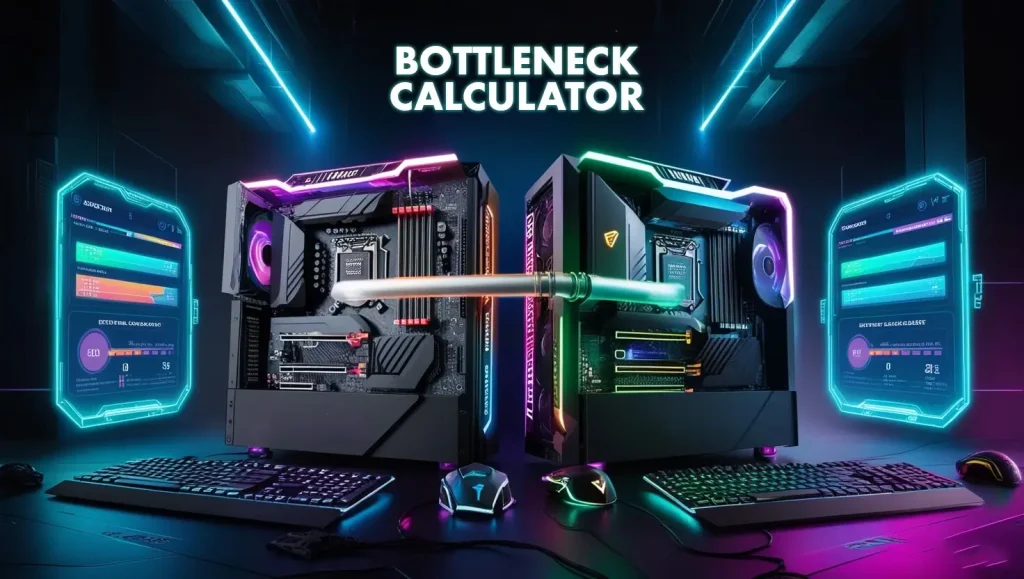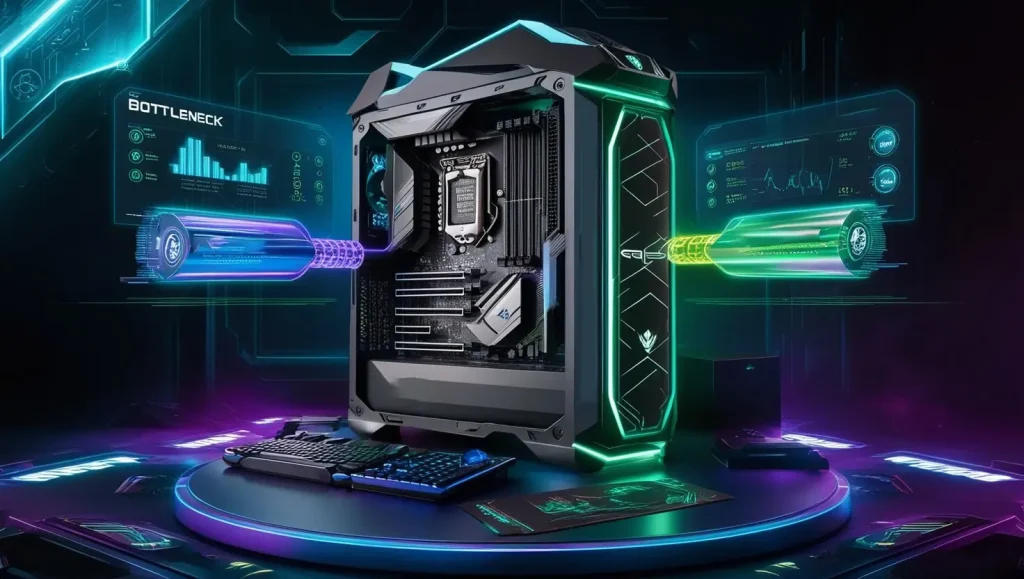is Bottleneck Calculator Accurate?

A bottleneck calculator, like the PC build bottleneck calculator, and our bottleneck calculator are useful tools that helps users estimate potential performance limitations in their system.
However, the question of “is bottleneck calculator accurate?” often arises. While these tools provide valuable insights, they are not always perfectly accurate due to several influencing factors.
These calculators provide an estimate based on the specifications of your hardware, such as the CPU and GPU, and how they work together in gaming or other resource-intensive tasks.
Factors involved in accuracy of Bottleneck Calculator
Let’s explore the accuracy of bottleneck calculators and how you can improve your system’s performance.
1. Generalized Algorithms
Bottleneck calculators rely on predefined algorithms and general datasets that estimate the relationship between your hardware components, particularly the CPU and GPU.
These calculations are based on common benchmarks and gaming workloads, which may not reflect your unique use case or exact hardware configuration.
For instance, a calculator might suggest a significant bottleneck between your CPU and GPU for gaming, but in reality, this might be less of a concern depending on the software or resolution you plan to use.

2. Accuracy for Gaming vs. Productivity
Most bottleneck calculators are designed primarily for gaming scenarios, and they might not provide accurate results for other tasks like video editing, 3D rendering, or multitasking.
If you’re checking for bottlenecks while building a PC for gaming, a bottleneck calculator might be more accurate. However, if your system is intended for productivity tasks, you’ll need to consider additional factors beyond gaming-focused calculations.
For a more precise understanding, consider checking the bottleneck manually with real-world benchmarks and user reviews.
3. Software Optimization and Updates
The performance of your hardware also depends on how well your software or game is optimized.
For example, some games are more CPU-intensive, while others rely heavily on the GPU. Bottleneck calculators can’t account for the optimization levels of each game or software. As a result, you might find that certain games perform better or worse than expected.
Additionally, software updates can also impact hardware performance, meaning a system that was once bottlenecked might run smoothly after an optimization update.

4. Component Variability
Bottleneck calculators provide broad estimates, which may not capture subtle differences between similar components.
For instance, two different models of a GPU might perform differently due to variations in clock speeds or cooling solutions.
Additionally, factors like overclocking, thermal throttling, or even a weak power supply can affect the actual performance of your system in ways that a bottleneck calculator may not predict.
Understanding how to avoid bottlenecks and properly configuring your system through manual research and benchmarking can help you mitigate these concerns.
5. Other System Bottlenecks
While bottleneck calculators primarily focus on the CPU and GPU relationship, other system components such as RAM speed, storage (HDD vs. SSD), and even your motherboard can also impact performance.
These potential bottlenecks are often overlooked by calculators, meaning the tool may not provide a complete picture of your system’s overall performance.
For instance, how to reduce GPU bottleneck can be achieved by ensuring other components, like RAM and storage, are equally optimized to prevent slowdowns.
6. Is PC Build Bottleneck Calculator Accurate?
So, is the PC build bottleneck calculator accurate? While it’s a great starting point, the accuracy can vary depending on your specific use case. It’s essential to remember that the results from a bottleneck calculator are only an estimate.
For the most precise performance evaluation, it’s recommended to pair the calculator’s results with real-world benchmarks and test your system using specific software or games you plan to run.

Conclusion: A Helpful Tool, But Not Perfect
To sum up, bottleneck calculators can provide a rough estimate of potential performance bottlenecks in your PC build. They help users identify mismatched components, but for exact accuracy, especially for productivity tasks or specific games, it’s important to complement the calculator with manual research, real-world benchmarks, and hardware reviews.
Learning how to check bottlenecks manually and understanding how each component interacts can further improve your system’s overall efficiency.
By using a bottleneck calculator as part of your overall planning process, you’ll have a clearer understanding of potential issues and be better equipped to build a well-balanced PC setup.
